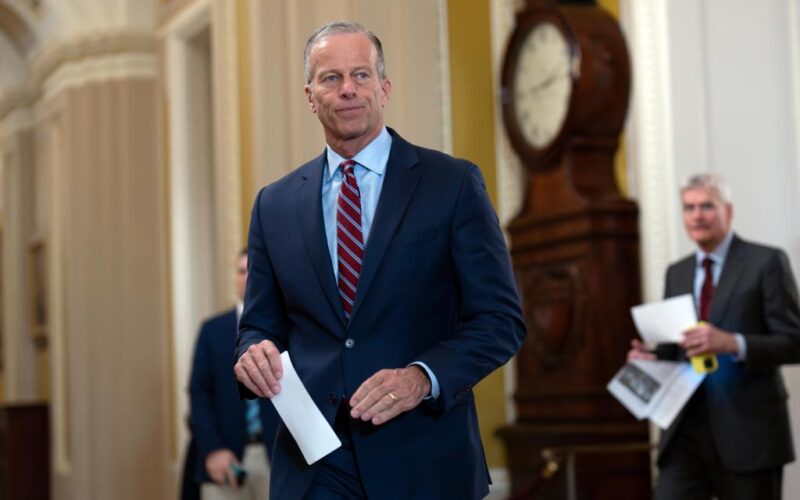U.S. Senate Majority Leader John Thune is very wrong to weaken the Senate’s historic filibuster procedure — which allows legislation and nominations to be slowed or blocked in the absence of 60 votes. Thune, pushed by fellow Republican President Trump, is taking this damaging and drastic step over frustrations at Senate Democrats, who have been blocking dozens of Trump executive nominees (some of them real stinkers).
Thune is framing his efforts at least in part as resulting from annoyance that Democrats who enjoyed many unanimous consent or voice vote confirmations during the Biden administration are now blocking Trump’s people, as if the two circumstances were the same.
Yet Biden largely nominated career officials and longtime experts that, while having generally more liberal ideological bent, were basically qualified public servants interested mainly in managing parts of the federal government while advancing Biden‘s agenda.
Trump, on the other hand, seems keen on filling the entirety of the executive branch with his own hand-picked sycophants who do not see their role as shepherding governmental institutions through his term, but often torching those institutions’ mission statements and disassembling them from the inside, while allowing themselves to be used as political weapons for the administration.
These two sets of nominees are not alike; if Republicans were joining with Democrats to sail through Biden-era picks, it was mostly because they were at least competent people who could be expected to take seriously their responsibility to the American public.
Their behavior makes it seem like the Republicans don’t expect to be out of power again at any time in the foreseeable future, which makes sense given that they’ve worked diligently to prevent that from being a possibility, what with Trump‘s attempts to overturn elections and block voting, and this year’s mid-decade redistricting pushes.
Still, a rational party would probably consider the idea that at some point or another, they will be on the side of the minority, and they should think about whether they want to be there having weakened the tools that the minority can use to check the majority’s power.
Back when Democrat Harry Reid was the Senate majority leader, he went ahead and whittled down filibuster rules around judicial nominations, which was helpful to his party at the time with Barack Obama in the White House, but which would eventually pave the way for Trump stacking the federal judiciary with his people, including three Supreme Court justices who have since decided to tilt the court into being a presidential lapdog.
It has frankly been a while since the Senate has really lived up to its reputation as a great deliberative body where members work to reach consensus on the crucial issues of the day. That tradition has been shattered by reality where the MAGAfied GOP seems keen mainly on greasing the wheels for Trump‘s takeover of America and as Republican senators, fearing Trump-backed primary challengers, fall in law to confirm unfit nominees like Pete Hegseth and Bobby Kennedy.
Still, it seemed once that Thune, unlike cutthroat predecessor Mitch McConnell, had some respect for the institution’s independence and its role as a tempering force on the excesses of the more chaotic House and the political imperatives of the executive.
Trump has wanted to get rid of the filibuster since his first term and the Senate refused him. Senators of both parties must keep their independence and their traditions and maintain this tool that respects the rights of the minorities.
Don’t cave, Mr. Thune. One day you’ll regret it. We are sure that Harry Reid did.








